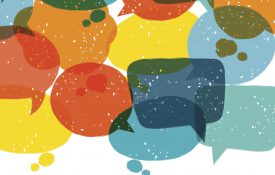-

Feeling Sated Can Become a Cue to Eat More
Internal states, even feeling full, can be learned as cues to seek out food, research shows.
-
The Case For Boredom
Science Friday: Neuroscientists will tell you that boredom gets a bad rap. Research is starting to show that the time we spend doing literally nothing could be extremely beneficial. Letting our minds wander could actually be the time we need to understand what we want from life, or spark the creative ideas that will move a long-stuck project forward. But if you’re always on your phone, whether it’s texting or checking Twitter, can you ever be bored enough for your mind to wander into brilliance? Read the whole story: Science Friday
-
This psychologist could stop police racism before it happens
Wired: "Hey, man," says the officer sauntering up to your car. The nonchalant greeting might seem insignificant - but it's not. If you're white, that police officer is statistically more likely to lead with "Hello, sir." Jennifer Eberhardt, a social psychologist at Stanford University, heads a team of computational linguists, engineers and computer scientists, which is developing speech-recognition and transcript-analysis software for policing. Using machine intelligence, the system scans transcripts from body-camera footage to recognise patterns of racial disparity. Read the whole story: Wired
-
Infants Can Learn the Value of Perseverance by Watching Adults
The Atlantic: There exists a seemingly infinite stream of self-help articles that advise parents on how to raise kids with grit—children who persevere in the face of challenges. The offered wisdom ranges from the generically obvious (Praise the process! Use positive words!) to the bizarrely specific (Create an obstacle course!). But perhaps the simplest way of instilling persistence in your kids is to persist yourself—and let them see you doing it. According to a new study by Julia Leonard, Yuna Lee, and Laura Schulz at the Massachusetts Institute of Technology, even 1-year-old infants can draw lessons from such unspoken, undirected demos.
-

New Research From Psychological Science
A sample of articles exploring evaluative processing and amygdala activity, genomic imprinting and the psychology of music, and neural representation of color ensembles.
-

Quality Beats Quantity in Team Communications
A team that communicates frequently isn’t necessarily communicating effectively, researchers find.

